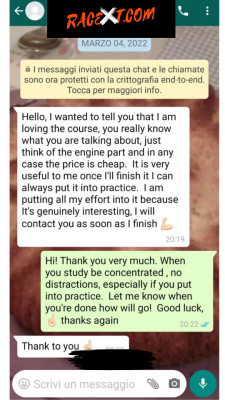Non categorizzato
Motorcycle repair tools
Motorcycle repair tools: Discover the essential equipment every aspiring mechanic needs for effective and professional motorcycle maintenance.
Motorcycle Repair Tools: Essential Equipment for Aspiring Mechanics
Becoming a skilled motorcycle mechanic requires not only knowledge but also the right tools. Whether you’re just starting out or looking to expand your expertise, having a well-equipped toolbox is essential. In this article, we’ll explore the motorcycle repair tools every aspiring mechanic should have, how to use them effectively, and how they tie into professional training such as the Motorcycle Mechanic Course.
Why Are the Right Tools Important?
Motorcycles are intricate machines with unique components. Having the correct tools ensures:
- Efficiency: Complete repairs quickly and accurately.
- Precision: Avoid damaging sensitive parts like screws, cables, or electronics.
- Professionalism: Deliver high-quality service to clients or maintain your own motorcycle safely.
If you’re considering formal training to complement your toolbox, check out this detailed Motorcycle Mechanic Course to gain both practical and theoretical knowledge.
Essential Motorcycle Repair Tools
Here’s a list of tools you’ll need to get started as a motorcycle mechanic:
1. Basic Hand Tools
- Wrenches and Sockets: Use metric sizes for most motorcycles.
- Screwdrivers: Flathead and Phillips for various screws.
- Allen Keys: Essential for working on handlebar and engine components.
- Pliers: Needle-nose and locking pliers for wire adjustments.
These tools form the backbone of your repair kit and are indispensable for any job.
2. Torque Wrench
A torque wrench ensures that bolts are tightened to the manufacturer’s specifications. Over-tightening or under-tightening can lead to mechanical issues.
3. Multimeter
Modern motorcycles rely heavily on electronics. A multimeter helps you diagnose electrical issues such as faulty wiring, dead batteries, or malfunctioning sensors.
4. Motorcycle Stand
For safe and effective repairs, invest in a sturdy motorcycle stand. It provides stability and raises the bike to a comfortable working height.
5. Chain Breaker and Riveting Tool
Maintaining the motorcycle chain is crucial for performance and safety. These tools allow you to replace chains or adjust their tension efficiently.
6. Tire Repair Kit
Flat tires are common and require immediate attention. A tire repair kit, including tire irons and a patching kit, is a must-have.
7. Oil Filter Wrench
Changing the oil and replacing the filter are routine maintenance tasks. An oil filter wrench makes this process straightforward and mess-free.
8. Diagnostic Scanner
For advanced mechanics, a diagnostic scanner can read error codes and pinpoint issues in electronic control units (ECUs). This is especially useful for modern motorcycles.
How to Organize Your Tools
To maximize efficiency, organize your tools in a logical manner. Use a toolbox with labeled compartments or a wall-mounted pegboard to keep everything accessible. This approach is particularly helpful if you’re working on multiple motorcycles or teaching others, as seen in structured programs like the Motorcycle Mechanics Course.
Complementing Your Tools with Training
While tools are essential, knowing how to use them correctly is equally important. That’s where professional training comes in. The Motorcycle Mechanic Course provides step-by-step instructions and video tutorials to help you master both basic and advanced repairs.
For additional guidance, check out resources like the Motorcycle Mechanics Institute, which offers insights into professional certifications and advanced repair techniques.
FAQs About Motorcycle Repair Tools
Q1: Can I start with a basic tool kit and add more as I gain experience?
Yes, it’s a good idea to begin with essential tools like wrenches, screwdrivers, and pliers. You can expand your collection as you take on more complex repairs.
Q2: Are motorcycle-specific tools necessary?
While general tools work for many tasks, motorcycle-specific tools like chain breakers or diagnostic scanners are crucial for advanced repairs.
Q3: Do I need a motorcycle mechanic course to use these tools?
Not necessarily, but a course like the Motorcycle Mechanic Course can teach you how to use tools effectively and avoid common mistakes.
Q4: What’s the best way to maintain my tools?
Clean your tools after each use, store them in a dry environment, and regularly check for damage or wear.
Q5: How much does it cost to build a complete motorcycle repair kit?
The cost varies depending on the tools and brands you choose. Basic kits may cost around $200, while advanced setups with diagnostic equipment can exceed $1,000.
Conclusion
Investing in the right motorcycle repair tools is a key step toward becoming a proficient mechanic. Pairing your tools with professional training, like the Motorcycle Mechanic Course, ensures you have both the knowledge and equipment to excel in motorcycle maintenance and repair.
Start building your toolkit today, and don’t forget to check out the Motorcycle Mechanics Course for expert guidance!




